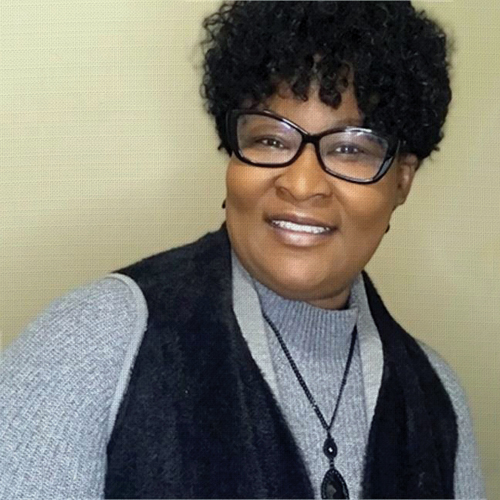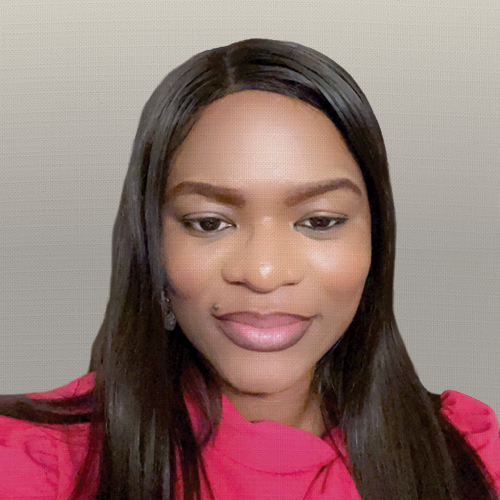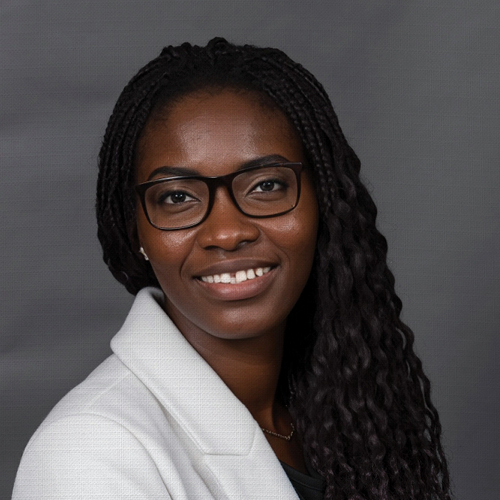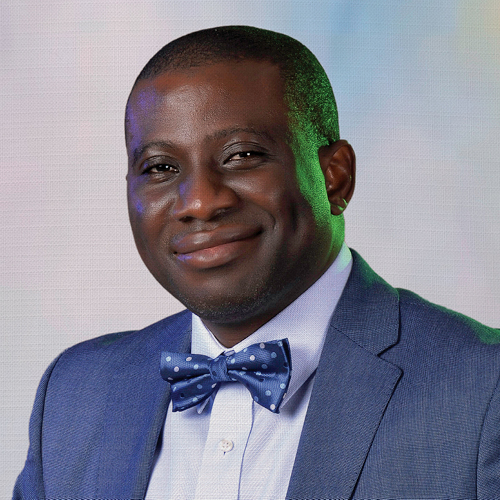Black History Month a time to consider inclusivity throughout the year
To be human is to have biases, says Ola Odanye, equity, diversity and inclusion specialist at NAIT. Through our past experience or understanding, we may make judgments that favour or overlook unconsciously. And when that tendency to make assumptions applies to people, “it is a difficult thing to talk about, for sure,” says Odanye.
“But it is worse if we shy away from it.”
For Odanye and event assistant Alisha Shah, the primary organizers of events for Black History Month on campus, February is a perfect time to have deeper conversations about bias. And a post-secondary campus is a perfect place to “critically address” the issue, adds Odanye.
To that end, he and Shah spoke with four members of the Black community at NAIT to share their perspectives on persisting stereotypes, the influence of heritage in their lives, how Black history can be celebrated on campus year-round, and more.
Through those conversations, Shah hopes to “deepen that journey” for those looking to overcome biases. “There's no harm that comes with wanting to learn more,” she says. “The outcomes can be positive.”
Check out the Black History Month events for NAIT students and staff
Taking pride in heritage: “I wouldn't want to be anything else”
 Lorrane Vaccianna, Financial Advisory Leader, Financial Advisory Services: I’m a proud Black woman from Jamaica. I do nothing to hide my heritage. I'm always sharing Black history with my colleagues.
Lorrane Vaccianna, Financial Advisory Leader, Financial Advisory Services: I’m a proud Black woman from Jamaica. I do nothing to hide my heritage. I'm always sharing Black history with my colleagues.
There were times [in history] when I could not be a financial advisor or leader or an accountant – I would not have been allowed, as a coloured person or as a woman.
I think I owe it to myself, to my family, to my ancestors, to do well and to capitalize on any opportunity.
Dr. Agatha Ojimelukwe, Acting Director, Applied Technologies Operations: I was born and raised in Port Harcourt, Nigeria, and I love being Black. I wouldn't want to be anything else.
[In Canada], somehow you keep being the odd one out. This started when I [got] my first job here. Being Black, I do feel like I have something to prove – that we are good enough, that I am competent. You push yourself to be more all the time. Don't get me wrong, I'm very competitive. Coming here, I find that I'm now on overdrive.
Dealing with stereotypes: “What other differences are there?”
 Kemi Adeyele, Business administration – Human Resources Management student: I have a friend who asked me, “Kemi, are you rich in your country?” I was like, “Why did you ask?” [My friend said], “Everything online makes us feel that Africans are poor. They don’t have food. They don’t have houses.”
Kemi Adeyele, Business administration – Human Resources Management student: I have a friend who asked me, “Kemi, are you rich in your country?” I was like, “Why did you ask?” [My friend said], “Everything online makes us feel that Africans are poor. They don’t have food. They don’t have houses.”
I went on the internet and showed her we have beautiful places and natural resources. Yes, we have extremes, but we are not poor.
The next thing she said was, “I would like to visit.”
Vaccianna: I don’t know if it’s because of the colour of my skin but I'm followed around sometimes [by staff at stores], as if maybe I might take something or do something wrong.
[Also], sometimes people feel they can touch or comment on my hair. I think it’s wrong because I wouldn't see someone with straight hair and say, “I just want to touch your hair.” People treat us as exotic sometimes. I want people to understand that we’re just people. My skin shade might be different but what other differences are there?
Ojimelukwe: My first job here in Canada, I was working as a coordinator in an IT company. I just needed a job really quickly. I did countless applications. Every time I had “Nigeria” on my application, I didn't get any interviews. But [then] someone took a chance.
I kid you not, in my interview the president of the organization said, “Are you aware of the Nigerian Prince [internet scam]?”
Dr. Adetoyese Oyedun, Senior Project Manager, Plastic Research in Action: I live in a rural area and I've met some people who say, “Oh, you're very brilliant!” I [recognize] their tone. Looking at where I came from, they feel that, “You're not like what we thought.”
If you look at it carefully, it's based on what we have seen on TV. Some people … just believe that if you're from Africa you’re poor or dejected. So when they see you living [a certain] kind of life here they are surprised.
Looking to learn more? Here's the NAIT Library's Black History Month reading list
The opportunity of Black History Month: “What we do can have a ripple effect”
 Ojimelukwe: Black History Month can bring to light the diversity within [being] Black and the uniqueness of our lived experiences, and create awareness. It's beautiful that in one month we can promote the richness of the Black culture and history.
Ojimelukwe: Black History Month can bring to light the diversity within [being] Black and the uniqueness of our lived experiences, and create awareness. It's beautiful that in one month we can promote the richness of the Black culture and history.
I feel like what we do in this month can have a ripple effect throughout the year, because we bring these concepts to the limelight and say to everyone, “It's time to stop and listen and see and learn – and then take that with you for the rest of the year.”
Oyedun: We did some [courses] with Indigenous people two or three years ago and that really made me understand where they are coming from.
In the same way, I believe that learning about Black history helps people – especially those who have not travelled, to understand that, “OK, what we've seen on TV is not necessarily the way things are.”
Even for me as Black, I’ve learned a lot from Black History Month. [During one], I saw a video of the first Africans in Alberta. I just think it's a very good thing if we can have some learnings about Blacks, especially their contribution in Alberta.
In November 2021, NAIT published its first Equity, Diversity and Inclusion Strategy as part of its committment to ensuring that all people feel safe, respected and valued at the institute. Download a copy
Steps to take at NAIT: “We are always here – not just in February”
 Vaccianna: My grandmother was born in 1913. When I look back on her great grandmother, they would have very fresh memories of slavery in Jamaica. 1830 is not as far [back] as people seem to think.
Vaccianna: My grandmother was born in 1913. When I look back on her great grandmother, they would have very fresh memories of slavery in Jamaica. 1830 is not as far [back] as people seem to think.
How can we get Black history into our curriculum [at NAIT]? People of colour are a part of the student body and staff. We are always here – not just in February.
Ojimelukwe: I did a course on building intercultural competency a couple of months after I joined NAIT. We could have a similar course [on Black history] or incorporate it into courses like that. You can have leaders within NAIT promoting those courses to employees.
Vaccianna: It starts with leadership – getting the message out, endorsing our events. Last year I attended all [NAIT Black History Month] events and leadership was at most of them. It means something. Their presence and their voices can make a big difference.
Oyedun: I might make a correlation to the Nîsôhkamâtotân Centre [where Aboriginal and non-Aboriginal students can gather to network, study and share their post-secondary learning experiences]. It’s eye-opening.
If we can have a centre like that throughout the year and have courses that people can take to learn more about the Black history beyond the month of February, that could be something.
Adeyele: We should encourage leadership to pull up [members of the] Black community to become leaders, students especially, so that at different levels we have representation.
Ojimelukwe: I think that awareness and training like intercultural competence training for leaders is crucial. You should be aware of stereotypes and microaggressions.
Adeyele: NAIT has tried hard to make sure that everyone feels included. I haven’t felt any different because of my skin colour. My lecturers have been fair and inclusive.
[But] I think one thing we should do is find a way to celebrate our Black community at NAIT. I recently witnessed Diwali [on campus] and it was so beautiful. I think we can come up with something where we can dedicate one day to celebrate Black heritage – something that would make people at NAIT see that we matter.